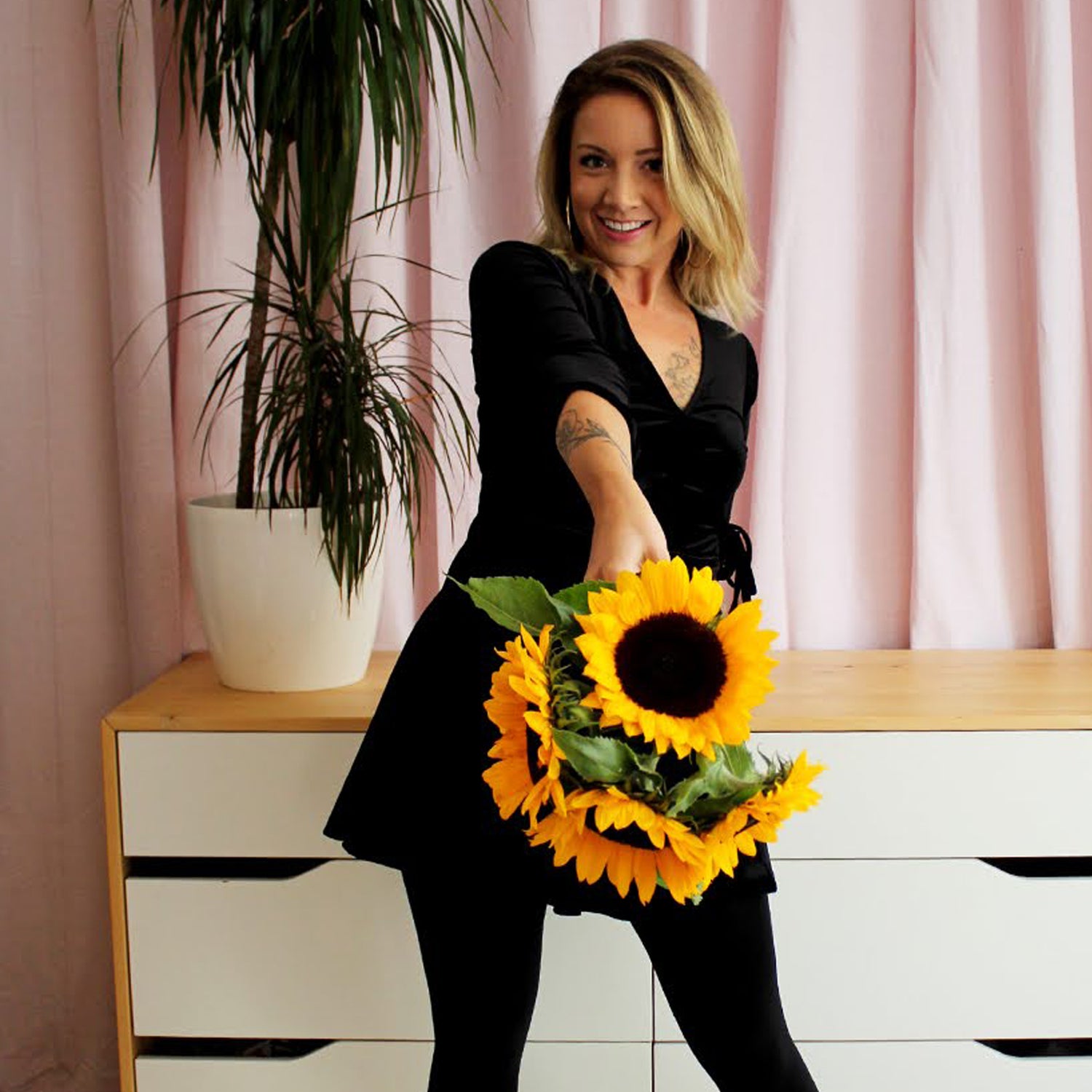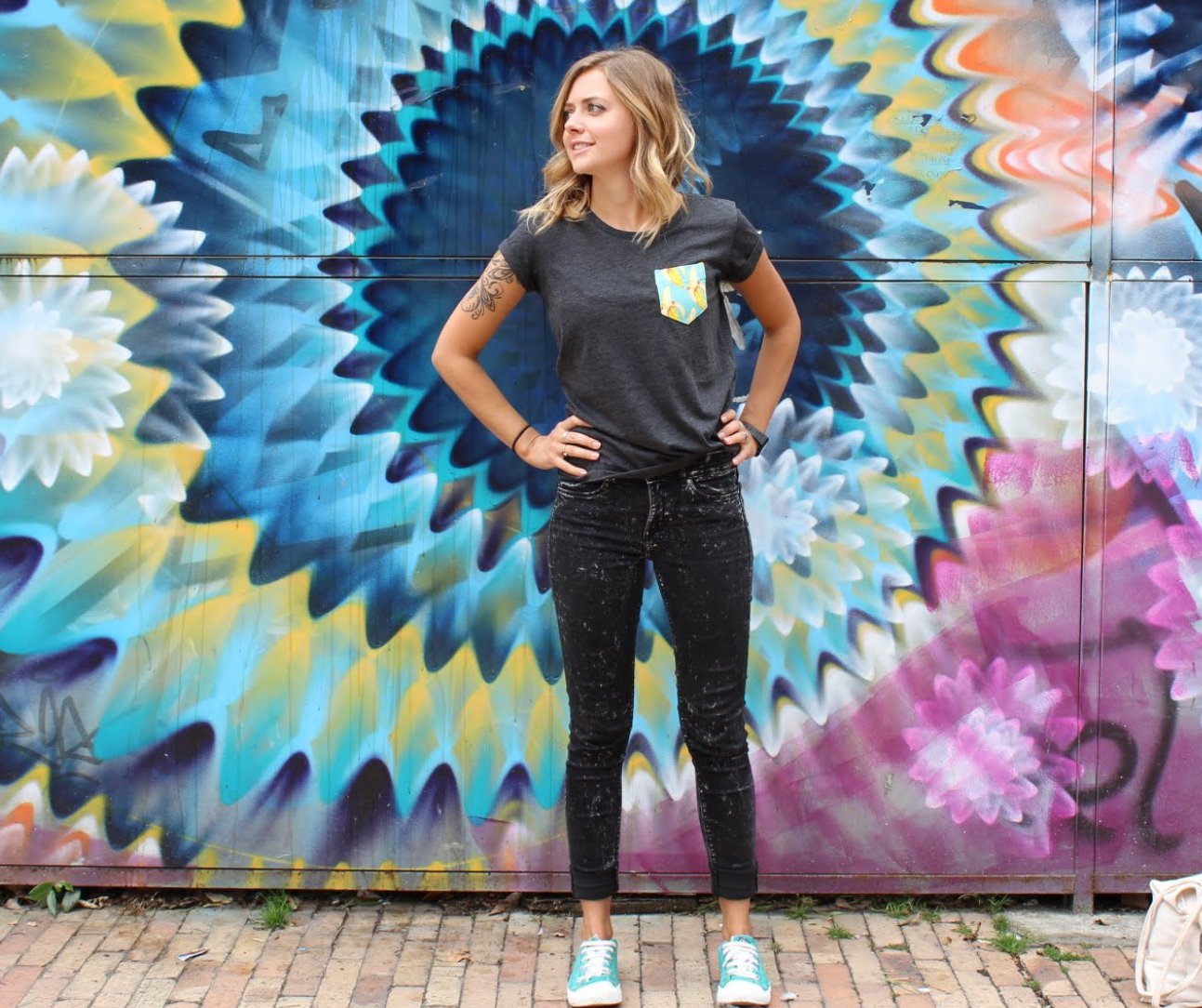Meet Our Fabrics - Fabrics in Focus
At TIZZ & TONIC we have a passion for sustainable materials and only use fabrics we trust and believe are responsibly sourced and environmentally conscious. We are constantly looking at new ways to improve our sources and our overall production processes because what you wear can really make an impact! The garments we wear everyday can be made from something that hurts the planet or made from something more sensibly produced. Fabrics and fiber technology paired with innovation are the true future of fashion
We work with two types of fabric in three compositions to create a range of undergarments that are not only comfortable but also environmentally conscious. Since our studio is not certified we cannot put the fabric certifications labels (example GOTS or Cradle to Cradle™ SILVER certified) on our products. We are however completely open about our production practices and we know the entire process from when the fabric arrives to us until the final product leaves our studio.
The three types of fabric we work with are:
Micromodal
A.K.A to us as the “magic” material of comfort. It is a human made cellulosic forest based fiber that is plush, lightweight, breathable and buttery soft. Our modal is blended with a bio-based elastane (bio rather than oil) which means no micro plastics. All of our Modals are produced under the MADE IN GREEN Oeko-tex standard.
Organic Cotton
Cotton is a classic fabric that is breathable, soft, comfortable and has been around for 1000s of years. This textile is widely adored for its use in undergarments since it is soft, stretchy, durable and breathable. We work with organic cotton that is certified by the GOTS (Global Organic Textile Standard) which means that it is grown without the use of pesticides and processed without using harmful chemicals or production methods. GOTS guarantees the traceability of organic cotton from field to final garment, and also fair and ethical working conditions. Sticking to our roots these fabrics that are already found in our collections are here to stay.
Recycled Cotton
Recycling plays a crucial role in sustainable textile production. Currently, recycled textiles make up only about 1% of the total textile consumption, highlighting huge room for growth. Recycled cotton is an eco-friendly alternative to traditional cotton, created by reusing and repurposing cotton textiles and garments that would otherwise end up in landfills. The recycling process involves collecting, sorting, and breaking down discarded cotton items into fibers that can be spun into new yarns. This sustainable approach significantly reduces the demand for virgin cotton, conserving water, energy, and resources in the production process. Recycled cotton is a crucial component of the circular economy and contributes to reducing textile waste and the environmental impact of the fashion and textile industries. By recycling more materials we can eliminate the need for new natural or fossil resources which promotes environmentally friendly practices.
The three compositions we are working with are:
Micromodal/ROICA™
Organic Cotton/ROICA™
Organic Cotton/Recycled/Elastane
We use three different compositions for our products. The first is Micromodal/ROICA™. The fibers for this material come from Lenzing AG and are Cradle to Cradle™ SILVER certified. Please note that while the textiles are made with Cradle to Cradle, anything digitally printed cannot be certified due to the dye usage in the printing process. Some dyes can contain small amounts of trace metals, however the process of digitally printing textiles versus dip dying uses far less water and is therefore a sustainable option when it comes to textile processing .
The second composition is Organic Cotton/ROICA™. These fabrics are made with GOTS Organic Cotton and are Made in Green ÖKO-TEX certified. Some of our collection is digitally printed, which means they are not Cradle to Cradle™ certified.
The third composition is Organic Cotton/Recycled Cotton/Elastane. Both organic and recycled cotton reduce the need for conventional cotton production, which often involves pesticides and high water consumption. This blend helps conserve resources and promotes eco-friendly textile practices.Organic cotton is grown without synthetic pesticides or fertilizers, promoting healthier ecosystems and reducing chemical exposure and recycled cotton utilizes post-consumer or post-industrial cotton waste, diverting textiles from landfills and conserving resources. Elastane, adds flexibility and stretch to these fabrics, enhancing comfort and fit. The combination of these materials results in textiles that not only prioritize environmental responsibility but also provide durability and ease of movement, making them an excellent choice for conscious consumers who value both comfort and sustainability.
We are developing our products to be either compostable, or recyclable. However, blended materials can make this process complicated, and with cotton products, the fibers get shorter each time they are recycled making the materials less flexible for soft garments. Therefore, we recommend using the fabric until it is no longer possible and then finding the right recycling facility to process it so that new textiles can be made from it.
One of the main advantages of compostable material is that it doesn't create more trash, as the material in the ground dissolves over time. This means less waste and no microfibers (from the products with ROICA™). Our fabric producer does not use any toxic chemicals, as everything is at least Made in Green ÖKO-TEX certified. This means that the fabrics that are digitally printed can also be composted but are not certified and as previously mentioned in the worst case, can contain small traces of metals. If these items are composted in an industrial setting, these small traces of metals can be removed.
When it comes to composting, we have done tests in our own garden with the items containing ROICA™ only as conventional elastane is not biodegradable. We found that the results are highly seasonal and depend on the composition of the compost and the moisture. Pure cotton (100% cotton) and modal take approximately 6-12 months to compost, while ROICA™ elastane takes approximately 18-24 months. However, we have had super speedy results (6 months with the ROICA™ elastane) in the late fall within an active compost.
The power of small brands making big changes. At TIZZ & TONIC we take great pride in our production practices that are carried out entirely in Germany. We have complete control over the entire process, from the moment the fabric arrives until the final product is ready to leave our studio. You might be asking yourself if the fabrics have all these certifications why aren’t our products certified? As a micro brand it is hard to have access to certification. They are expensive, rigorous and as we are transitioning to better materials our supply chain is getting a little shake up while we find the materials and partnerships that match to our standards. Although we are not currently certified, we remain transparent about our practices and are always working towards our sustainability goals. As a small company, this journey towards sustainability may be slow, but it is an extremely rewarding process. Our strategy is to tell you everything about the materials we work with and how we process them in our studio.
We remain committed to continuing to improve our practices, working with greener and environmentally conscious fabrics and ensuring that our customers can feel confident in the high-quality and sustainable products that we produce.This is where we are now and we are only looking to go forward.

Hey, ich bin Imke.
Ich bin die Lead-Designerin und Kreativdirektorin von Tizz & Tonic. Ich arbeite schon mein halbes Leben lang in der Bekleidungsindustrie und habe meine erste erfolgreiche E-Commerce-Marke im jungen und ehrgeizigen Alter von 15 Jahren gegründet und später zwei Kollektionen auf der Alternative Fashion Week in Toronto vorgestellt.
Ich bin ein Alumni des George Brown College, wo ich mein Studium in Modetechnik und -design in Toronto, Kanada, abgeschlossen habe. Mein Designstil ist es, Schönheit auf auffällige, aber einfache Arten zu kreieren. Ich schätze Looks, die gehoben und lebensfroh, aber nicht übermäßig komplex sind, weshalb die Ästhetik von Tizz & Tonic genau das ist - gewagte Basics mit einem Twist.

Hey, ich bin Yanna.
Ich schätze, ich bin die Nicht-Fashionista im Tizz & Tonic Team.
Mein Schwerpunkt bei der Marke liegt auf dem Thema Nachhaltigkeit. Mein Bildungshintergrund ist ein Bachelor-Abschluss in Biologie, der durch einen Tauchgang ausgelöst wurde, bei dem mich eine junge Meeresschildkröte fast in die Nase gebissen hätte. Der Anblick dieser zauberhaften kleinen Meeresschildkröte faszinierte mich und ich wusste sofort, dass ich etwas tun wollte, das dieser alten Art und dem Ökosystem, in dem sie lebt, hilft. Ich wusste nicht, dass mich das in die Modebranche bringen würde.
Zusammen mit Imke, ihrem Auge für Design und meiner Leidenschaft für die Umwelt sind wir ein ziemlich cooles Team und ich glaube, dass die Zukunft der Mode diese beiden Aspekte beinhalten sollte.
Produktions- und Designstudio Bremen
Da wir ein kleines und vielbeschäftigtes Team sind, bieten wir derzeit keinen Einkauf vor Ort oder Besuche in unserem Designstudio an. Vielen Dank für euer Verständnis!
Diese Geschäfte verkaufen ausgewählte Artikel von Tizz & Tonic. Bitte kontaktiere die Läden, um zu erfahren, was sie derzeit auf Lager haben.
- MADE IN BREMEN (Innenstadt,Bremen)
- TO TING (Viertel, Bremen)
Produktion & Design Studio: Hermann-Ritter-Straße 112 Loft 1.18 28197
Kontakt: hello@tizzandtonic.com / + 49 179 4536148
Social: @tizzandtonic
Bist du daran interessiert, ein Tizz & Tonic-Vertriebspartner zu werden?
Schreib uns eine E-Mail - wir freuen uns darauf, von dir zu hören!


